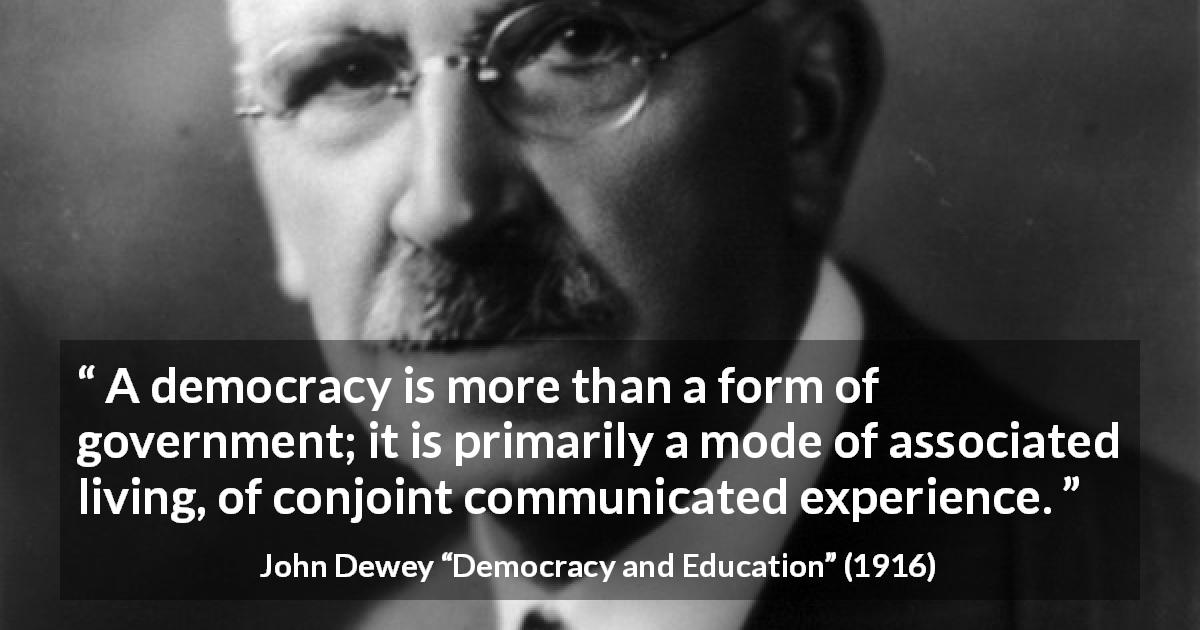
Knowing this, Dewey rejected philosophical dualisms (good v. Societies tend to develop ideologies, a set of values (often inconsistent and detached from reality), including national myths, stories, and cultural knowledge that resist critique. The reader may view this proposition as common sense, but change (social reconstruction), as Dewey knew too well, is often resisted and criticized, particularly by individuals and groups who benefit from the status quo. Here, Dewey’s thought is very similar to Thomas Jefferson’s in that the latter advocated generational sovereignty, meaning that each generation should have the freedom to restructure its society, its constitution, and its institutions in ways that improve social life and individual happiness. Rather, he believed that a fundamental (and often underutilized) characteristic of human nature was the ability to create change from the culture within which one is born. However, he did not believe that this knowledge be received passively. Indeed, he knew that it is necessary for each generation to transmit knowledge to the next generation. He often writes about education as both a cultural and adaptive experience and as a formal structured classroom process. Articulate the purpose for and criticisms of his focus on social reconstructionism.ĭewey was fascinated with education, both formal and informal learning.Articulate problems that you may see in Dewey’s educational philosophy or teaching methodologies.Explain what Dewey’s ideal classroom and teaching methods were.

Explore how communication and democracy are related in Dewey’s educational philosophy.Elaborate on Dewey’s emphasis on democracy and his democratic ideal.Explain how Dewey constructed his idea related to educational means and ends.Articulate Dewey’s naturalist philosophy.



 0 kommentar(er)
0 kommentar(er)
